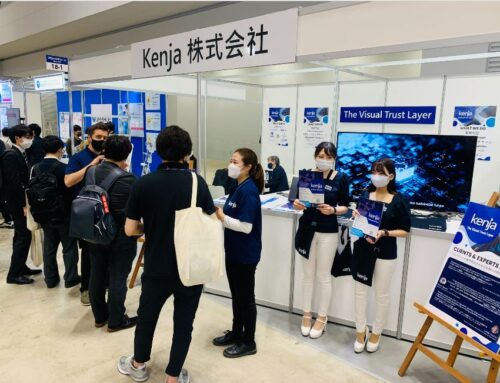Delivering transparency to the Halal certification process.
Kenja’s Halal Certification is a four phase end-to-end blockchain solution created to provide traceability and transparency to the accreditation process of the Halal Industry. The solution digitalizes the certification process for a faster way to conduct audits and enables collaboration between Halal auditors, inspection institutions, and regulatory organizations.
The veracity of Halal food has been thrown into question since 2014 due to the numerous bribery and corruption scandals circulating in the Halal industry. From the Halal meat substitution fraud in Malaysia to the improper slaughter protocols at abattoirs in Australia and the wrongfully-obtained Halal accreditations in Indonesia, the integrity of Halal inspection institutions and government regulatory organizations have been thrown into question.
In order to restore consumer confidence and combat the negative scandals, transparency and traceability in processes both internally and externally is crucial. Transparency and traceability within the supply chain allows for internal cross-checking as well as increased efficiency. While, external transparency and traceability allows for third-party verification to rebuild consumer trust.
Another important measure, especially as Islam grows globally, is to confirm the veracity of Halal food labels. This was the path chosen by the Indonesian government as the representative body of the biggest Muslim-majority country in the world. The Indonesian Law 33/2014 requires all products which enter, circulate, and are traded within the country be Halal certified by the National Body of Halal Assurance (BPJPH) before using the Halal label.
However, due to the complicated and tedious nature of the auditing process, applying for certification is considered a difficult and discouraging roadblock. Such factors thus necessitated a solution which could facilitate transparency and traceability as well as improve the auditing process. After consulting with Indonesia’s two biggest Halal stakeholders and their government regulatory organization, the BPJPH, Kenja developed the Halal Certification solution.
The solution, a blockchain-enabled digital platform, offers transparency and traceability internally with an access control feature to manage the permission level each individual may possess. It also provides a dashboard for stakeholders in the auditing and certification process which they can use to track, monitor and trace individual certifications.
Kenja’s Halal Certification solution also runs a digital version of the auditing process which allows auditors to complete each certification case in half the original processing time. Its simplicity also has the added benefit of catering to all end-users regardless of their knowledge level. This ensures its appeal to not only certified auditors but also to potential auditors, product owners and manufacturers.
Moreover, the solution is uniquely positioned for mass adoption by various entities. It may be customized to suit any organization’s needs at low cost. It is additionally capable of connecting various entities in one space wherein requirements may be submitted, documents may be audited and verified, information may be inspected, and auditors may be rated.
Kenja’s Halal Certification is marketed towards auditors, inspection institutions and regulatory organizations. It is currently being utilized by one of Indonesia’s largest Halal stakeholder and has the potential to fully digitalize Halal auditing in the country. Kenja aims to bring traceability and transparency to the Halal industry by introducing the Halal Certification solution to Halal certification stakeholders around the world.




